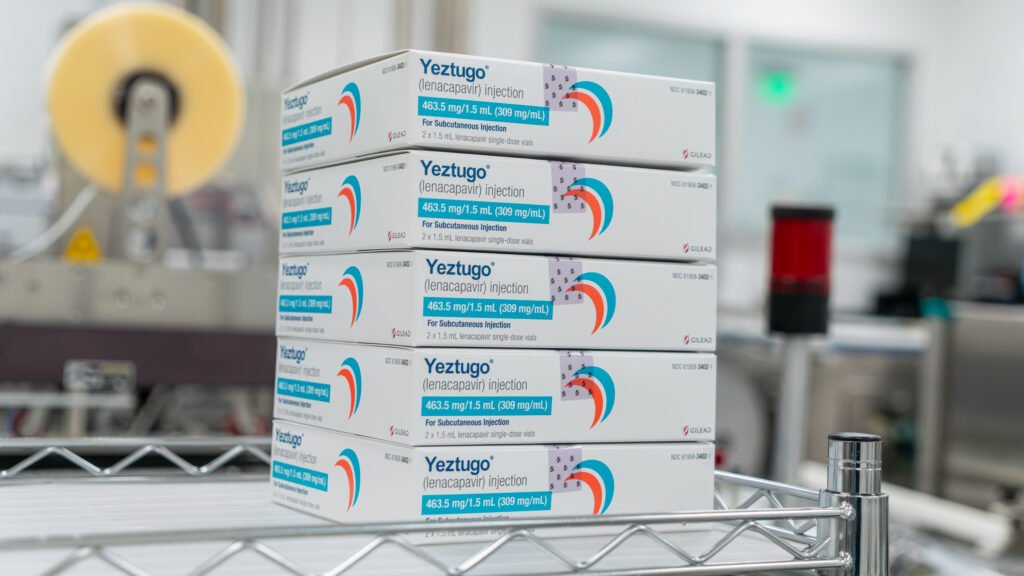The recent approval by the Food and Drug Administration of a new drug called lenacapavir, marketed as Yeztugo, has sparked excitement in the medical community. This powerful drug offers nearly complete protection against HIV infection with just a single administration every six months. Many experts are hailing this breakthrough as the closest thing we have ever had to a vaccine for HIV, potentially revolutionizing the way we approach and combat the virus.
The development of lenacapavir comes after decades of research and innovation in the field of HIV treatment and prevention. Gilead, the company behind the drug, has invested significant resources into developing this groundbreaking intervention. Lenacapavir works by targeting the protective outer shell of the HIV virus, disrupting its ability to infect immune cells. This unique mechanism of action sets it apart from traditional PrEP drugs that require daily pill intake.
Despite the promising potential of lenacapavir, there are concerns about the challenges it may face in reaching populations most in need. The current political climate, marked by cuts to HIV treatment and prevention programs, raises doubts about how widely the drug will be accessible in the U.S. and globally. The high price of Yeztugo, set at $28,218 a year, may also present obstacles for insurance coverage and affordability, especially when generic alternatives are available.
In the U.S., there is hope that lenacapavir will provide a more convenient option for existing PrEP users and attract those who have struggled with daily pill adherence. The drug’s twice-yearly administration schedule offers a promising alternative for individuals who may find it challenging to take a daily medication. However, there may be hurdles in getting insurers to cover the cost of a brand-name drug over generics.
The potential impact of lenacapavir on the HIV epidemic is significant. Gilead aims to reach 1 million PrEP users by 2030, with projections of earning $3.2 billion annually from the drug. The company’s success with Yeztugo is crucial for its future growth, as it seeks to make a meaningful impact in the fight against HIV.
Despite the challenges ahead, researchers and clinicians remain optimistic about the potential of lenacapavir to transform HIV prevention and treatment. The drug’s unique mechanism of action, combined with its long-acting formulation, offers a promising solution for individuals at risk of HIV infection. With ongoing efforts to expand access and affordability, lenacapavir could be a game-changer in the fight against HIV/AIDS.


